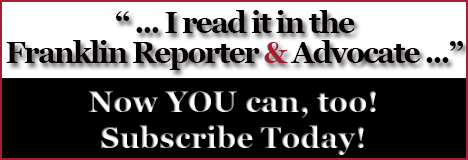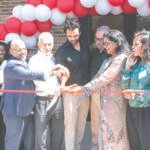Faithful Gather At Masjid-e-Ali For Religious Festival

Some of the nearly 200 people who attended the Eid al-Adha celebration Sept. 1 at Masjid-e-Ali mosque.
Approximately 200 people gathered at Masjid-e-Ali mosque on Cedar Grove Lane Sept. 1 to celebrate one of the two most important holidays in the Muslim calendar.
It was the festival of Eid al-Adha, commemorating the narrative of God commanding Abraham to sacrifice one of his sons. In the narrative, Abraham is stopped by an angel just as he was about to kill his son.
The story of Abraham is also acknowledged by Christians and Jews, although the name of the son to be sacrificed differs.
The Masjid’s Imam, Rizwan Rizvi, told the congregation that what matters to God is less the sacrifice than the “spirit behind the sacrifice.”
God “doesn’t need flesh or blood because he is not physical like you and I,” Rizvi said. “It’s the piety and the sincerity behind that sacrifice that you’re making.”
“Throughout the year, any act that you perform should be done sincerely … to get on the path to piety and closer to God Almighty,” he said.
“Sacrifice teaches us to prefer others over ourselves, to overlook other’s mistakes,” Rizvi said.
In the Muslim tradition, during Eid al-Adha, an animal is sacrificed – as the narrative has Abraham sacrificing a ram after his son is spared – and the bulk of the mean is given away to the poor and impoverished.
The practice, he said, “teaches us to share the same food with the poor and the needy as these classes have been designed and devised by the superficial world, but do not exist in the plan of Allah.”
There are two Eids in the Muslim calendar. The other, Eid al-fitr, commemorates the end of the month of Ramadan and is considered less important than Eid al-Adha.
Following the prayers and sermon, the congregation was given a traditional meal.



























































